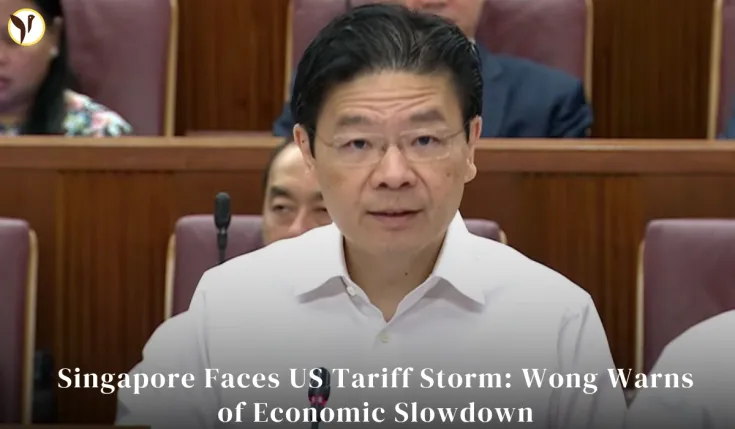Lawrence Wong: Singapore Braces for Economic Headwinds
Singapore's economic outlook faces significant uncertainty, Prime Minister Lawrence Wong warned in a recent parliamentary address. The imposition of sweeping US tariffs, even on Singapore despite its zero tariffs on American imports, threatens to severely impact the nation's growth trajectory.
Impact of US Tariffs
PM Wong, who also serves as Finance Minister, stated that while a recession isn't certain, economic growth will be "significantly impacted." He cited reduced job opportunities, smaller wage increases, and the potential for increased retrenchments as direct consequences of slower growth. The Ministry of Trade and Industry is reassessing Singapore's initial 1-3% growth forecast for 2025, anticipating a downward revision.
The 10% universal tariff imposed by the US, even with Singapore's trade deficit with the US, deeply disappointed PM Wong. He emphasized that these actions are inconsistent with the close friendship between the two nations. The impact will be particularly felt by outward-oriented sectors such as manufacturing, wholesale trade, transport, and finance.
Government Response and Wider Implications
To address the challenges, the government is establishing a task force chaired by Deputy Prime Minister Gan Kim Yong. This task force, including representatives from key business and labor organizations, aims to bolster business resilience and assist workers navigating uncertainty. Budget 2025 measures, including CDC and SG60 vouchers and support schemes, will provide short-term relief.
Beyond the immediate economic impact, PM Wong highlighted the broader implications for the global trading system. The US tariffs represent a rejection of WTO rules, increasing the risk of a global trade war. This shift towards protectionism and the "me-first" mentality threatens to destabilize the global economy and potentially damage the US-China relationship, carrying far-reaching consequences.
Singapore's Strategy
Singapore's response focuses on strengthening ties with like-minded partners committed to free trade, bolstering intra-ASEAN collaboration, and adapting to a more volatile global landscape. PM Wong emphasized the need for unity and resilience as Singapore navigates these unprecedented economic headwinds. He also underscored the government's readiness to deploy additional resources if needed, drawing on decades of fiscal prudence.






